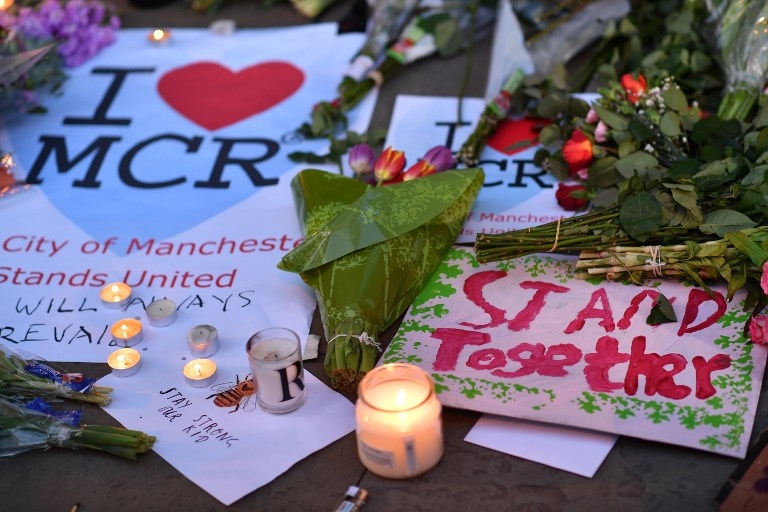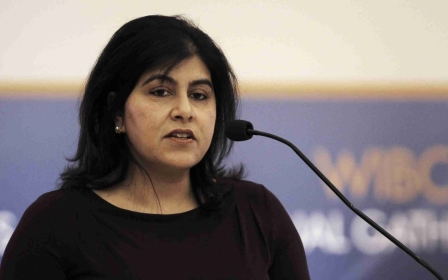Manchester bomber probably not acting alone: UK home secretary

The suspected Manchester suicide bomber was likely not acting alone and was known to police, the British home secretary has said.
"It seems likely, possible, that he wasn't doing this on his own so the intelligence services and the police are pursuing their leads in order to make sure they get all the information ... that they need to keep us safe," Amber Rudd told BBC radio.
Authorities have named the bomber of the Manchester Arena concert on Monday night as Salman Abedi, 22, who was born in the city to parents of Libyan origin.
British police on Wednesday made three more arrests in south Manchester over the attack.
Asked to confirm whether Abedi had recently come back from the country, Rudd told the BBC: "Yes, I believe that has been confirmed. When this operation is over, we will want to look at his background and what happened, how he became radicalised and what support he might have been given."
Asked if he was known to the intelligence services, Rudd said: "The security services will know a lot of people, it doesn't mean they are expected to arrest everybody that they know but it is somebody that they had known before and I'm sure when this investigation concludes we'll be able to find out more."
On Tuesday, the Islamic State group claimed the attack, which killed 22 people, including children, who were attending the concert of US singer Ariana Grande.
Rudd said she was not surprised “at all” that IS would have claimed the attack, but that she could not confirm any link.
“We don't have that information yet,” she said.
Trip to Syria?
The French Interior Minister Gerrard Collomb said on Wednesday that he had probably travelled to Syria.
"Today we only know what British investigators have told us - someone of British nationality, of Libyan origin, who suddenly after a trip to Libya, then probably to Syria, becomes radicalised and decides to carry out this attack," Collomb told BFMTV.
Pressed on how he knew Abedi had been in Syria, Collomb said this was the information that French and British intelligence services had.
Asked if he believed Abedi had the support of a network, Collomb said: "That is not known yet, but perhaps. In any case, (he had) links with Daesh (Islamic State) that are proven."
Lots of information about Abedi, including his name, had come from the United States and Rudd was asked whether she would look again at information sharing with other countries.
"Yes, quite frankly. I mean the British police have been very clear that they want to control the flow of information in order to protect operational integrity, the element of surprise, so it is irritating if it gets released from other sources and I have been very clear with our friends that should not happen again."
Asked whether the US leaks had compromised the investigation, she said: "I wouldn't go that far but I can say that they are perfectly clear about the situation and that it shouldn't happen again."
She also said that more money would be given to the controversial Prevent counter-terrorism programme, should the Conservatives be re-elected at the general election on 8 June.
Andy Burnham, the Labour Mayor for Greater Manchester, said on Wednesday that he had concerns about the Prevent programme and that it was important not to raise suspicion of an entire community.
Cautioning against describing the attack as “Islamic terror,” Burnham said that: “We have to be careful of the language used … I think sometimes the language used does not help us and further increases this sense of distrust.”
“[Abedi] no more in my view represents the Muslim community than the person who killed my friend, Jo Cox, represents all white British men,” he told the BBC, referring to the killing last year of a Labour politician by a white man with links to far-right groups.
Middle East Eye propose une couverture et une analyse indépendantes et incomparables du Moyen-Orient, de l’Afrique du Nord et d’autres régions du monde. Pour en savoir plus sur la reprise de ce contenu et les frais qui s’appliquent, veuillez remplir ce formulaire [en anglais]. Pour en savoir plus sur MEE, cliquez ici [en anglais].




